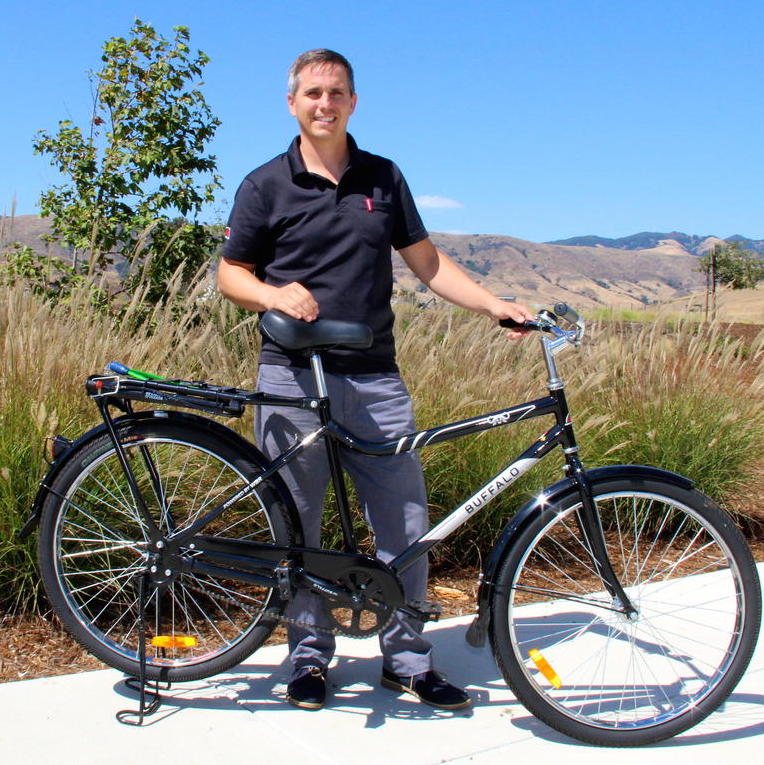Saving the world one bicycle at a time
Culture Editor Tom Wilmer visits with Will King, Bicycle Design Engineer at SRAM’s San Luis Obispo, California R&D high-tech bicycle component facility (RockShox, Trucativ, Zipp, Quarq, etc.). King talks with Tom about SRAM’s involvement with World Bicycle Relief an international nonprofit organization that mobilizes people and transforms lives through The Power of Bicycles.
CLICK HERE TO LISTEN TO PODCAST INTERVIEW WITH WILL KING
Fundraisers and individual donations provide specially designed, locally assembled bicycles to students, healthcare workers and entrepreneurs in rural Africa, connecting them with education, healthcare and economic opportunities.
The Buffalo Bikes are a literal life-transforming gift for people in remote African villages and communities. Young girls are primary recipient of the bike, as the transport offers them a safer mode of travel between school and home, and dramatically reduces travel time as schools are often situated far from the village.
Another primary recipient of the Buffalo Bikes are health care workers. One woman that King visited with told him that she travels more than 60 miles per day delivering health care to recipients in remote villages. Dairy farmers are able to increase their deliveries by more than 25 percent, and overall student attendance increases up to 28 percent.
World Bicycle Relief provided some touching life transforming examples: Community Health Worker Ramadhan Bakari cares for 522 people across 105 households in Kakamega County, Western Kenya. But when walking up to 8 km to see each patient, he could visit only a few homes per day.
Things changed in July 2015 when the Malaha Dispensary and Health Center, in partnership with Africa Medical and Research Foundation (AMREF) Kenya, received 30 Buffalo Bicycles to strengthen its community health systems. Trips to patients’ homes became 10 minutes instead of an hour or more. And healthcare workers can now visit up to 30 homes a day.
Community Health Workers (CHWs) are crucial healthcare providers in rural Africa. CHWs visit patients at home, transport patients to medical facilities, and provide preventative education and care.
Their work is especially vital for children born in sub-Saharan Africa, who are 12 times more likely than their counterparts in high-income countries to die before their 5th birthday. The region has 11% of the world’s population but carries 24% of the global disease burden. It lacks the infrastructure to provide even basic healthcare to many of its people.
To fulfill their responsibilities, CHWs often walk long distances over rough terrain and in inclement weather. As a result, fewer people get the care they need.
But with a bicycle, healthcare workers can reach 45% more patients and travel four times farther than on foot, research shows.
At the Malaha Dispensary, Clinic Manager Dr. Bernard Ochanda says 60 bicycles are as valuable as one car. Bicycles can cover more territory and serve more people.
Many times, “the bicycle is used in getting the mothers into the clinic for delivery,” says Ochanda. “Compared to home deliveries, delivery at the clinic is far more safe. Traveling by bicycle is far less expensive than hiring a vehicle.”
World Bicycle Relief believes that all individuals should have access to proper healthcare.
The net cost of a Buffalo Bike is around $150, underwritten through donations. To ensure that the bikes remain in operable condition, local villagers are trained as mechanics, and often suggest design improvements to minimize breakdowns.

To learn more and to donate visit: www.worldbicyclerelief.org







